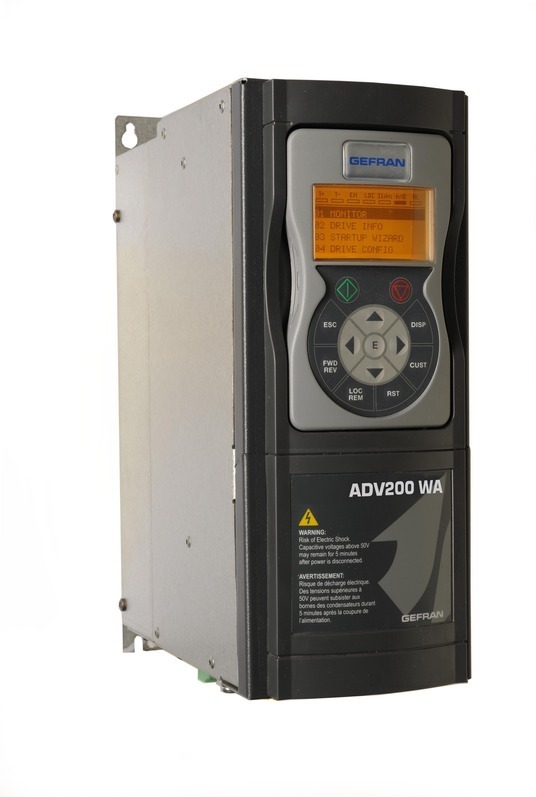HVAC: efficiency, accurate measurement, rapid response
Posted on 3rd November 2019 at 20:58
Inverters for controlling variables in HVAC-R systems
Good management of measurement and control of process variables in an HVAC system is essential because it provides technical benefits as well as considerable returns on investment.
Accurate measurement, rapid response, efficiency, and advanced control are fundamental tasks of products with high technology content. They improve the Life Cycle Cost of systems and guarantee correct operation of the entire process.
In an HVAC-R (Heat - Ventilation - Air - Conditioning & Refrigeration) system, good management of measurement and control of process variables is fundamental for economic sustainability and system efficiency.
In this field, control valves (despite their known disadvantages) are still used to manage flows. Using these devices with a motor whose speed can’t be controlled and that always runs at 100% causes the valves and mechanical parts to age quickly, with consequent loss of system efficiency.

The inverter adjusts the motor variables
In a typical setup with drive and motor applied to a ventilation system, the inverter adjusts all of the basic variables of the motor and of the system it is applied to, such as:
voltage
current
nominal speed
Consequently, the inverter adjusts torque based on the demands of applied loads.
The inverter sets and controls motor speed by means of pressure, temperature, or flow rate feedback.
An inverter provides significant cost savings in terms of energy (up to 50% less than a motor connected directly to the power supply) and extends the working life of system components.

Control of process variables
The process variable is controlled via feedback from a transducer that sends an analog signal in proportion to fluctuations of the fluid and interacts with a specific PID control managed entirely by the drive.
In addition to suitably and dynamically controlling the variation, this ensures the required setpoint.
Advanced inverter functions
Latest-generation inverters do not offer only basic controls, but also have advanced functions for HVAC-R systems, such as:
Emission of air in industrial combustion chambers
Fume exhaust
Air recirculation systems
Refrigeration systems
Industrial fume treatment
The correct use of electric motors is also environmentally sustainable: a modern system generates a lower level of pollutants (such as CO2) and protects the environment.
Gefran’s offer
With its ADV200 WA series of dedicated inverters, Gefran offers advanced solutions for the automation and control of electric motors, integrating applications for HVAC (chillers, heat pumps, hot air generators, fan convectors).
This is the ideal product for many sectors, such as: industrial, mining, environmental, construction, public, marine and Oil&Gas. With 7 different mechanical sizes, the ADV200 WA series of inverters offers a power range from 1.5kW to 1.2MW with universal power supplies from 400V to 690V.
The drive can be controlled by an alphameric LCD keypad and by the “GF eXpress” tool for PC, with a graphic interface that lets the operator configure and monitor the unit easily and intuitively.

For more information please contact Electric Motors Online:
Tel +44 (0) 2476 980833
Email sales@electric-motors.online
Web www.electric-motors.online
Share this post:









